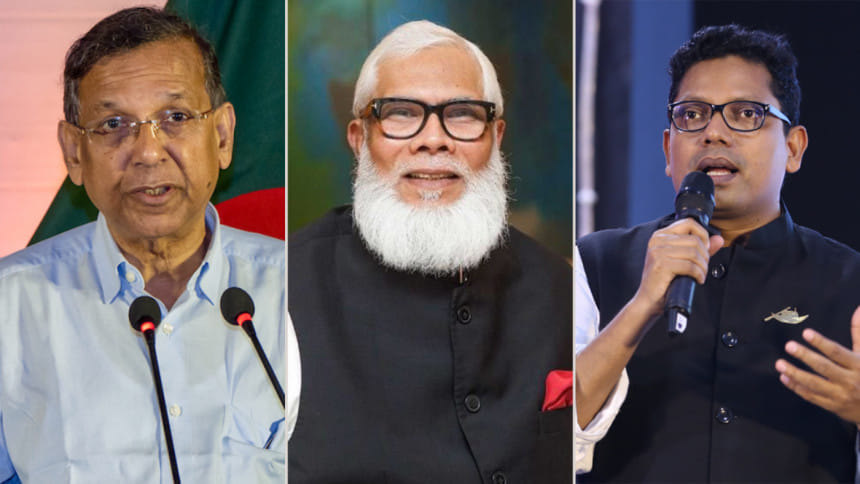Tables turn, but police stick to old tricks

That the former law minister Anisul Haque and Hasina's private investment adviser Salman F Rahman had instigated armed goons to kill a 24-year-old stall employee in the New Market area, is ludicrous as it is laughable.
While Salman is widely regarded as a mastermind for financial crimes, Anisul Haque is considered an outstanding legal mind, and a beneficiary of the endemic corruption that riddled the Awami League regime. Neither has the image nor the reputation of instigating violence on the streets of Dhaka.
But the police claim that is exactly what they did. The two, allegedly, instigated a mob to kill Shahjahan Ali on July 16. The police claimed to have arrested the duo on August 13 from Sadarghat when they were supposedly fleeing via the river way.
That is not all. The police claim that Major General Ziaul Ahsan, who headed the National Telecommunication Monitoring Cell, was also instigating the mob to kill Shahjahan. As Hasina's chief eavesdropper, the former general was hardly a man to be inciting mobs to kill shopkeepers.
What is more interesting is the claim of his arrest. The police officially arrested Ziaul Ahsan on August 16, but they had first claimed through a WhatsApp message that the general had been detained on a tip-off. But it was widely reported almost a week earlier that Ziaul was deplaned at Dhaka airport and, presumably, taken into military custody.
The faux pas was corrected in a following message several hours later, this time admitting that the army handed him over to the police.
Although ICT minister Zunaid Ahmed Palak and Chhatra League leader Tanbir Hasan Shaikat were widely reported to have been detained at the airport when trying to flee Bangladesh, the police claimed to have arrested them several days later from Nikunja, a residential neighbourhood close to the airport.
Taken together, the police appear to be resorting to the same old tactics solely meant to harass political opponents of the incumbent for expedience.
However, it was for these very malpractices that the keepers of the law were heavily criticised during the student protests, that later became a people's revolution.
The image of the police had become so tarnished for their excesses on protesters that they fled their stations and only dared to resume their duty under army escort and after repeated assurances. The home adviser agreed to change their uniform and logo since the current one had become a symbol of repression and violence. Along with that, there were calls for wholesale police reforms.
Perhaps worse still, Ziaul Ahsan said in court that he was kept at Aynaghor, the detention and torture facility run by the Bangladesh's spy agency DGFI, which has been reviled and criticised around the world thanks to a number of exposés in the media.
Ironically, however, those who strongly called for reforms even a few days ago appear to be shrugging off those concerns now that the tables have turned.

 For all latest news, follow The Daily Star's Google News channel.
For all latest news, follow The Daily Star's Google News channel. 





Comments